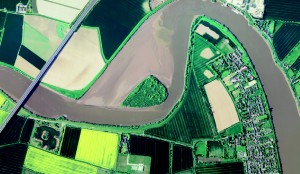A British conservation charity has purchased an eight hectare private island in England’s East Yorkshire region, protecting its wildlife and putting a halt to any existing development plans.
A British conservation charity, The Royal Society for the Protection of Birds (RSPB), has this week completed the sale of a privately-owned island in England’s East Yorkshire Region, paying a grand total of GBP 47,500 for 19 acre Howden Dyke Island and its wealth of wetland birds.
More commonly known as Hook Island, the island – located in the River Ouse – has long since been recognized as a Site of Special Scientific Interest and is home to a broad range of avian life, including a colony of lapwings, golden plovers, herons and even little egrets – a particularly rare breed of heron.
Targeted for development since 2009, the island was initially placed up for sale for a rather optimistic GBP 100,000, but failed to attract any serious bidders due to a threat of flooding. Studies suggested that the river’s six-meter tidal range would put pay to any habitation plans, with the possible exception of a specially designed stilted construction.
The island came to the attention of the RSPB by coincidence, after a member of the charity’s Humber-based team stumbled across a newspaper article and – half-joking – forwarded it to Site Manager, Pete Short. In no time at all, the mail had made its way to the group’s Bedfordshire headquarters, where a decision was soon made to buy it.
Secured for the knock-down price of GBP 47,500, the island is a dream come true for Short and his team – many of whom used to bird-watch in the region. “You can’t really put a cost on saving the natural environment,” said Short. “It is somewhere special; somewhere away from people – a nice, little sanctuary.”
Going on to suggest that if the society had not bought the island, “somebody would have wanted to do something with it,” Short sees the purchase as a very positive development for both the island itself and its thousands of avian inhabitants: “No longer at risk of development, the island is now safely preserved for the benefit of future generations”.
Contact Private Island News now to have your say about the growing trend of governments and conservancies buying islands by heading over to our Facebook, Twitter, Google+ pages.



